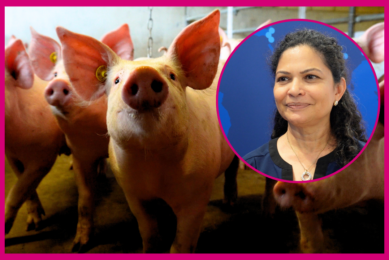Consumers confused about medicines in British meat

British consumers are confused about the use of animal medicines in livestock, according to a recent study.
A quantitative survey of more than 1,000 consumers published by the National Office of Animal Health and conducted by IGD found more than 80% of shoppers thought growth hormones were used in animals to make them grow faster. This compares with just 71% of shoppers in 2012, when the last study was conducted.
More than 80% of shoppers also believed the use of antibiotics and vaccines in livestock would make them less effective for humans.
Dawn Howard, chief executive of Noah said the findings were “very worrying”.
She said: “Firstly, growth hormones were banned across the EU back in 1988, so it’s a real concern that eight out of 10 shoppers believe they might still be used.
“With antibiotic resistance so prevalent in the media, it is perhaps less surprising to see so much concern about this among the public. But even so, the science is very clear – the use of antibiotics in British livestock is not the main driver of resistance developing among people.”
She added: “There is also a lack of public understanding about how vaccines work – and again, this misunderstanding seems to be getting worse.”
IGD also conducted focus groups to test consumer-facing messages that could help bust the myths that many shoppers hold. Comments from some of the groups highlighted that trust in the food industry was eroded by the horsemeat scandal.
During the focus groups one shopper said: “I don’t trust anything with red meat in it”, while another said “there is so much cancer around, is it because animals have been pumped full of drugs?”.
Ms Howard added: “We want to be working with the supply chain to bust these myths and ensure consumers get the right information. As a result, Noah is going to be working with retailers over the coming weeks to help bust the myth regarding use of medicines in livestock.”
The organisation is creating a toolkit for retailers, food manufacturers and others containing messages that worked well in the focus groups along with advice on appropriate outlets.
Source: Sarah Alderton, Farmers Weekly











